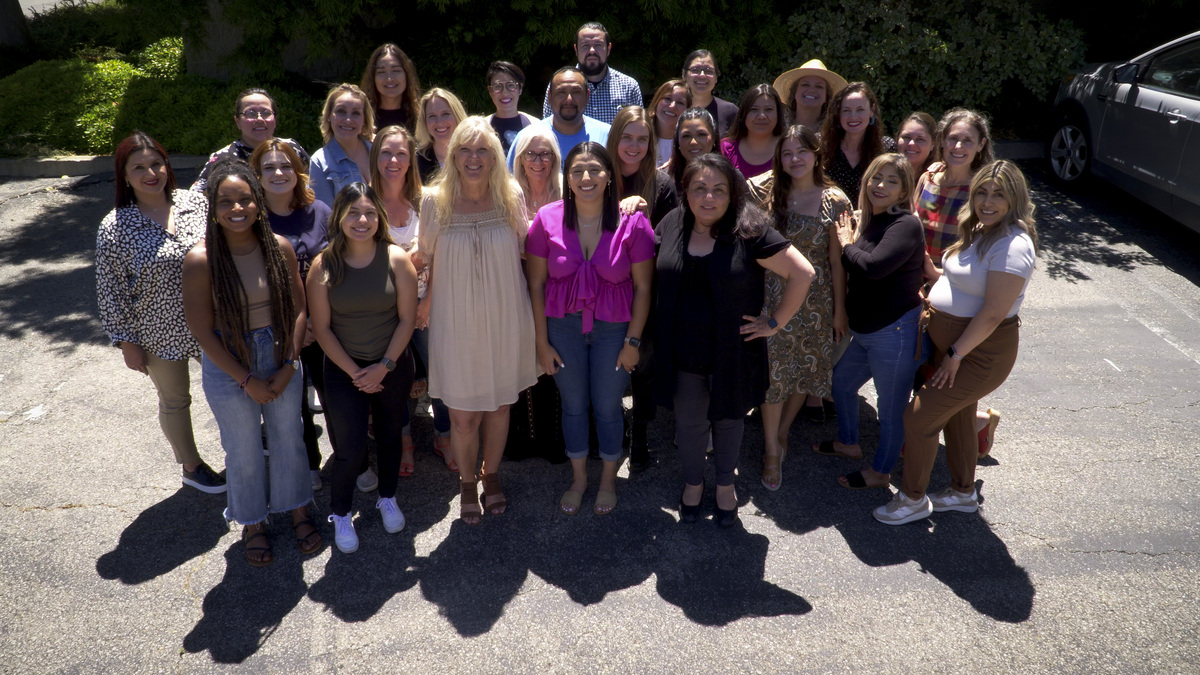Lumina Alliance is one of the few organizations in San Luis Obispo that provides help for survivors of sexual and intimate partner violence. It’s a nonprofit that focuses on preventative programs and all-encompassing services like therapy, transitional housing and legal services.
Now, the funding for their organization is under threat. The Victim of Crimes Act, or VOCA, was created in 1984 by the U.S. Congress as a way to help provide for survivors of crimes like sexual assault or intimate partner violence. Essentially, non-taxpayer money from VOCA’s Crime Victim’s Fund is provided to state and local programs aimed at helping victims of crime with grants. These grants are accumulated from fines criminals pay while in prison.
This year, VOCA is facing a 40% federal budget cut due to a decline in deposits in the Crime Victim Fund, which can be traced back to fewer federal fines and fees that make up the fund. For Lumina Alliance, this means they’re facing an $800,000 cut out of their more than $5 million budget. This would impact many of their direct interactions with clients.
One of Lumina’s services is the 24-hour crisis and information line. It’s been running long before Lumina Alliance actually managed it. According to the Director of Communications and Outreach Clementine Ellis, it’s been running for about 50 years. But for the first time since its conception, its hours might be cut.
“So there’s a real urgency to this issue, I think, because it’s impacting the most vulnerable people in our community,” Ellis said.
San Luis Obispo Legal Assistance Foundation (SLOLAF) is another organization that could be impacted by the cuts. SLOLAF mainly provides legal assistance to people in need. Through their family law services, they work with survivors of sexual and intimate partner violence deal with restraining orders as well as child custody and visitation.
Donna Jones is the executive director for SLOLAF. She said the program will be able to run for at least another year, but its future is unclear.
“The results of all of this are hard to say,” Jones said, “I have been backfilling the gap with other grants right now, but that’s not sustainable long-term.”
VOCA funding doesn’t only support programs helping survivors of sexual and intimate partner violence. San Luis Obispo Court Appointed Special Advocates (SLO CASA) serves children who are survivors of abuse or neglect by providing them with advocates who help them through the foster care system.
These advocates ensure that children’s needs are met. They also meet with stakeholders in the child’s life like teachers or social workers. SLOCASA receives about 40% of their income from VOCA, and they are anticipating a 20% total cut to their agency’s budget.
“We currently serve about 75% of kids in foster care and our goal is to serve 100% but at this point with these cuts, our goal is to sustain services without making sure that the kids don’t bear the brunt of these cuts,” said Marina Bernheimer, the executive director of SLOCASA.
Though the cuts only impact one aspect of her organization, its impact on others struck Jones when she found out about the cuts. She said the possibility that some organizations will be closing or having layoffs was “heartbreaking.”
Jones reached out to Jennifer Adams, Lumina Alliance’s CEO, at the end of Feburary asking if the organizations could work together. Soon after, Lumina Alliance, SLOLAF, SLOCASA and the District Attorney’s Victim Witness Assistance Center began meeting weekly to figure out a way to solve the issue. This led the four of them to create a campaign standing up for VOCA funding.
Part of their campaign is supporting Assembly Bill 2432, which seeks a state-level Crime Victim’s Fund, as the current one is only federal. Another goal is to get the state to allocate $200 million in additional funding alongside another $100 million for one-time emergency funding to prevent programs from being shut down from the budget cuts. Ellis said the proposal may seem large, but is well worth it due to the costs of serving vulnerable communities.
“When we’re not providing those services someone else is having to step in,” Ellis said. “So really, it’s not a question of how are we going to pay for this, it’s how are we not going to pay for this or how are we going to pay for this in the future?”
Bernheimer said that when vulnerable individuals like foster care youth are not taken care of, it can be detrimental. According to the Children’s Law Center of California, foster youth are more likely to experience forms of homelessness.
“Our secondary concern is what happens when those people don’t have their needs met and how that impacts the safety and the health of our whole community,” Bernheimer said.
The ultimate goal for the organization is to get VOCA funding on Gov. Gavin Newsom’s Budget, which is expected to be finalized June 12 and voted on June 15. If the funds are not included in the budget, that means organizations have to follow through with drastic changes to their programming.
“It takes on average of seven times for someone to try and leave an intimate partner violence relationship, so to think about someone who’s finally taking that step, who has reached that point, and then no one’s there to answer that call. I mean that’s life-changing for that person, right?” Ellis said.
According to Ellis, Assemblymember Dawn Addis has signed on to the $200 million ask from the organizations. The organizations created their own campaign website, which features an option for visitors to fill out a form that will send to Newsom to show support toward VOCA. They are also encouraging community members to call and email local and state representatives in opposition to the budget cuts alongside donating to local organizations if possible through their websites.

